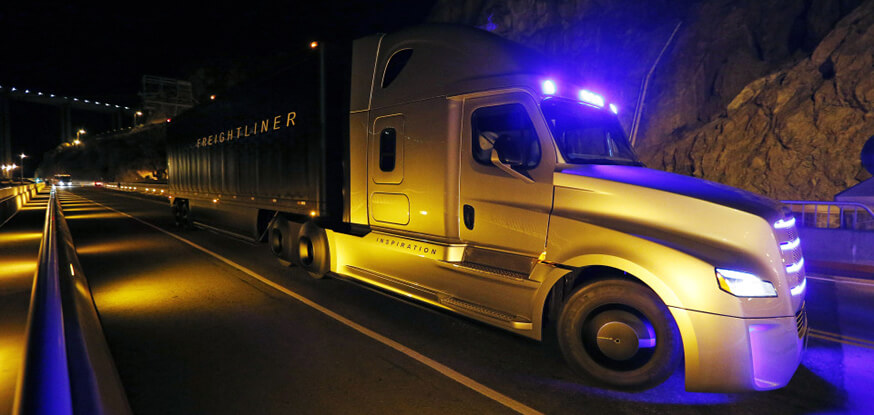Canada is set to introduce driverless trucks to its transportation fleet despite the imminent threat it poses to many jobs in the country. 2017 was a year in which the self-driving electric truck industry made huge advancement in autonomous technologies and has paved the way for the driverless trucks to be deployed on Canadian roads by 2019.
Now whilst the electric trucks aren’t driverless just yet, the concept has already undergone rigorous testing in Canada’s oil sands and in large scale mining operations in Australia. Last month, Tesla Inc. showcased a fully electric semi-trailer truck equipped with semi-autonomous technology including enhanced autopilot, automated braking, and lane departure warnings.
The movement towards the commercial deployment of driverless trucks comes from a combination of factors, which range from the desire of companies to improve productivity amidst a driver shortage, whilst governments are desperately trying to reduce the amount of deadly crashes involving trucks on a yearly basis.
In the US, a number of months ago reports emerged citing that the regulatory obstacles preventing electric vehicle companies had been removed and that consumer fears over hacking had been dismissed by the federal government in an attempt to accelerate the commercial deployment of driverless vehicles.
Toronto-based trucking firm, Fortigo Freight just recently joined Loblaws and Walmart Canada in pre-ordering Tesla semis. The $232,000 electric trucks are set to be delivered in 2019, and will eventually be driverless. Fortigo's president, Elias Demangos says that despite the company's investment, he isn't holding his breath when it comes to full acceptance of autonomous trucks.
Demangos says that while autonomous trucks will be well-suited for long hauls, for "short-hauls," drivers will still be needed for pick-ups and delivery of goods, according to CBC News Canada.
Suncor has been experimenting with automation since 2013 in its oil sands operations, although it wasn't until 2016 that the company began thorough evaluations of the autonomous heavy-duty trucks in a work environment. During the evaluation, Komatsu Ltd. heavy haulers were driven by sensors and computers, moving more than nine million tons of earth, running non-stop for 24 hours a day for a year.
While Suncor says the autonomous vehicles will mean fewer accidents, fuel, and operational savings, and a smaller environmental impact, workers say this will kill jobs.
“This is probably threatening to become the single biggest hit to jobs in Canada and the most immediate. It will be devastating to the workers, their families, and their communities,” said Ken Smith, a Suncor mechanic and president of Unifor Local 707A, which represents 3,400 Suncor employees, according to Fort McMurray Today. “The threat is here and it’s now.”

